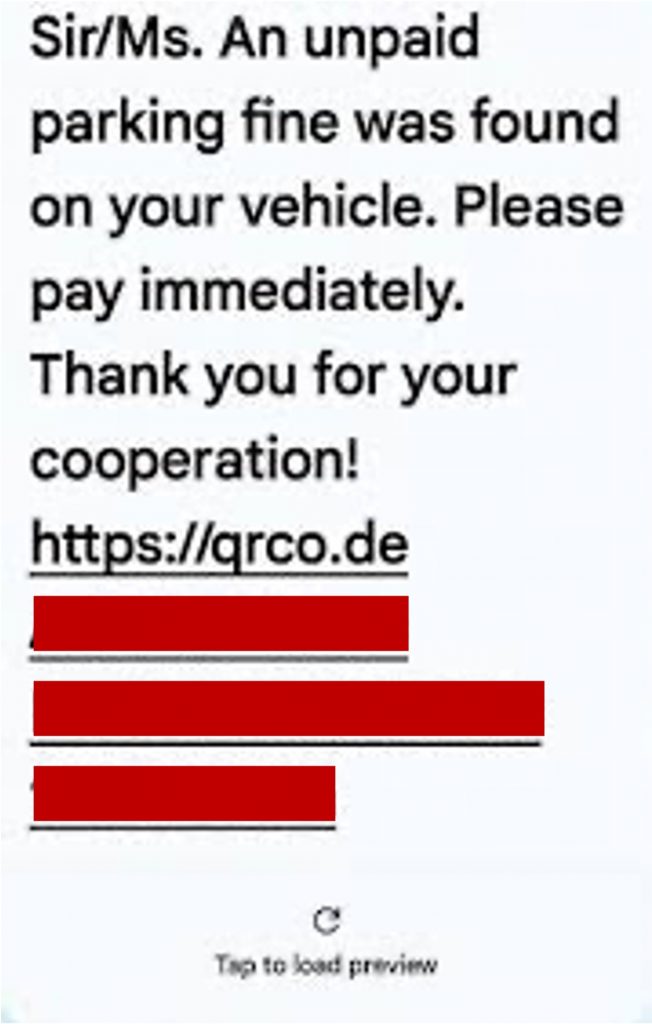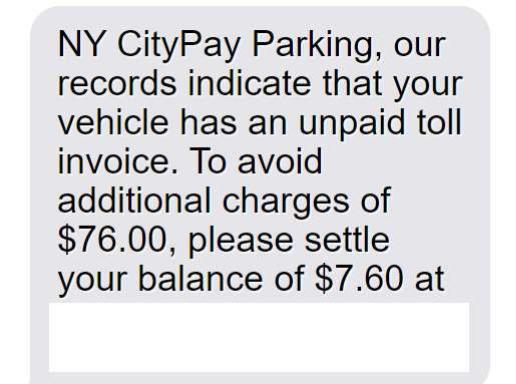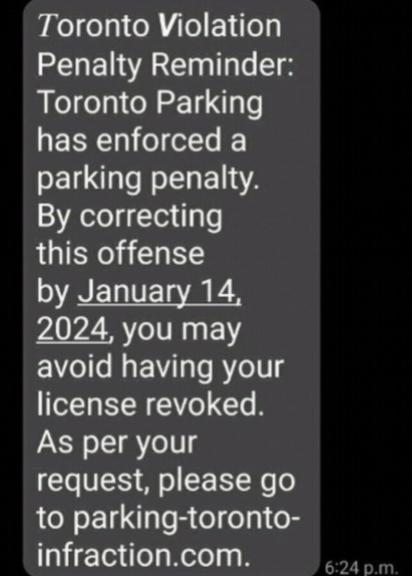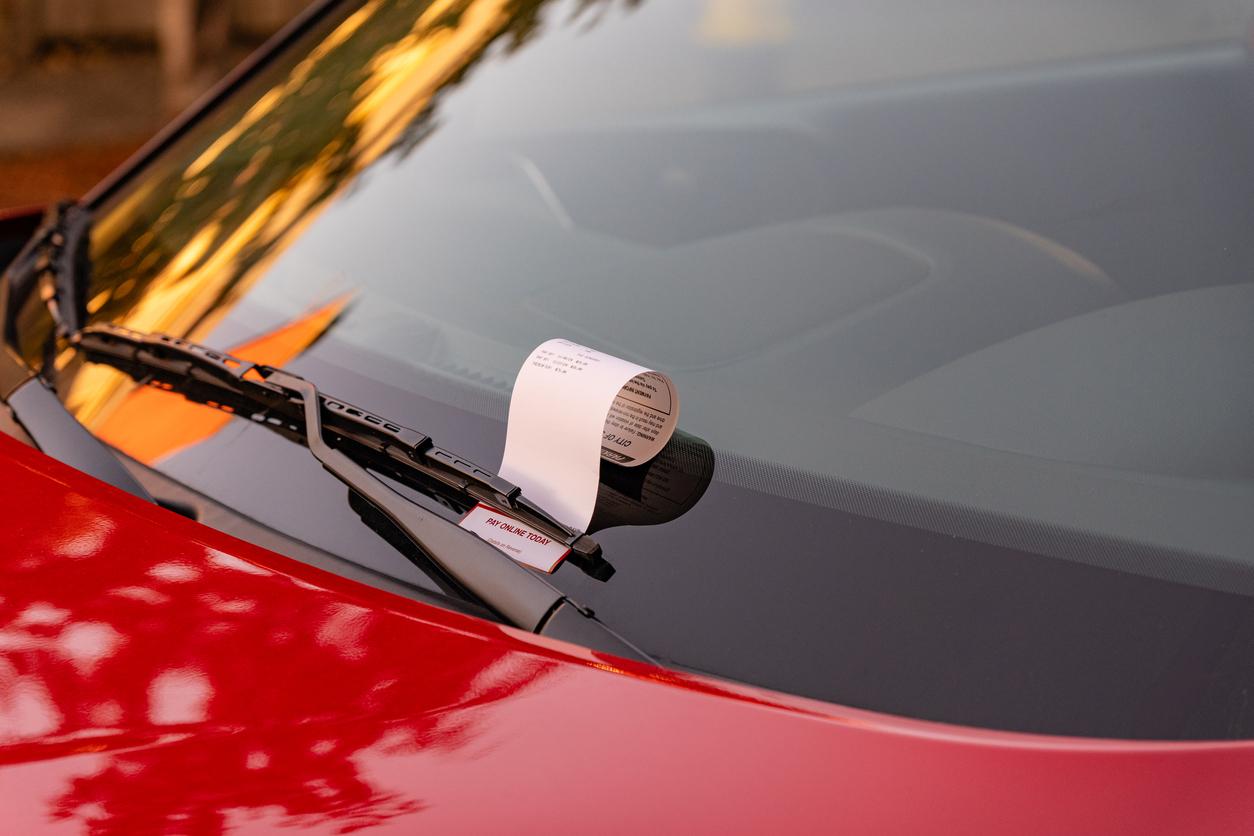Parking ticket scams are becoming more common and increasingly sophisticated. These scams prey on our natural inclination to avoid penalties, especially when faced with sudden fines or fees. Here’s what you need to know about how these scams work, how to spot them, and how to protect yourself.
How the Parking Ticket Scam Operates
In a typical parking ticket scam, you might receive a text message or email claiming you have an outstanding parking ticket or parking violation. These messages often appear official, referencing a “PCN” (Penalty Charge Notice) or similar code to make it look legitimate. The scammers aim to create a sense of urgency, prompting you to pay immediately to avoid further fines.
Why the Scam Is Effective
Parking ticket scams leverage urgency and fear. Many of us have experienced a parking ticket and know they can quickly escalate in cost. The thought of additional penalties can lead people to act fast without fully verifying the message.
Common Variations of the Scam
- Fake PCN Text Scam: You might receive a text mentioning a “PCN” for a recent parking violation. It will often include a link to pay.
- Parking Fine Scam Emails: These scams may come in email format, often with a “payment due” notice.
- Phishing Links for Payment: Scammers may direct you to a fake payment site to steal your payment or personal information.
- Fake Paper Tickets: Scammers are known to print their own tickets — some even complete with malicious QR codes.



Examples of fake parking ticket text
Red Flags to Watch For in a Parking Violation Scam
Here are some warning signs that a parking ticket message could be a scam:
- Unexpected Messages About Parking Violations: If you haven’t received a ticket in person, a notice out of the blue should raise suspicion.
- Urgent Payment Demands: Scammers often demand immediate payment, urging you to act quickly before “additional fines” kick in.
- Suspicious Links: If a link looks strange or doesn’t direct you to a city or official website, it could be a phishing link.
- Threats of Additional Fines or Legal Action: Some scammers may use intimidation tactics, such as threats of escalating fines or court appearances.
- Request for Personal or Payment Information: Legitimate parking authorities rarely ask for sensitive information in a text or email.
- Non-Official Phone Numbers or Websites: Verify the contact information and websites—scammers often use numbers and links that look like official ones but have subtle differences.
How to Verify Legitimate Parking Tickets
To avoid falling victim to these scams, here are some tips for verifying real parking tickets:
- Use Official Channels: Always visit the official website of your local parking authority for ticket verification.
- Understand How Parking Authorities Communicate: Most legitimate parking violations are issued via a paper ticket or a mailed notice, not through unsolicited texts or emails.
- Know Standard Ticketing Procedures: Familiarize yourself with the typical ticketing process in your area to spot anomalies.
- In the case of a paper ticket: Look for official logos and contact information on the ticket, and cross-reference these with the details listed on your local parking authority’s website. If in doubt — reach out!
- Verify Legitimate Payment Methods: Real payment sites will use secure payment methods and URLs starting with “https://.” Avoid entering information on unsecured sites.
What to Do If You Receive a Suspicious Text
If you get a text or email about a parking ticket that feels off, here’s what you should do:
- Don’t Click Any Links: Scammers often use malicious links that can install malware or redirect you to phishing sites.
- Don’t Provide Personal Information: Avoid giving out personal or payment information unless you’re certain it’s a legitimate source.
- Report the Scam: You can report phishing attempts to your email provider, your phone carrier, or local authorities.
- Protect Your Information: Consider using ScamCheck to scan and verify suspicious links or emails before clicking.
- Contact Local Parking Authorities Directly: If you’re unsure, contact your local parking authority to confirm if there’s an outstanding ticket.
With these steps, you can protect yourself from parking ticket scams and keep your personal information secure. Remember to stay vigilant and always verify unexpected messages demanding payment.
Protect Yourself with ScamCheck
With the increasing number and sophistication of scams, staying one step ahead is more crucial than ever. Unfortunately, antivirus software alone isn’t enough. Introducing the newly updated Trend Micro ScamCheck! Available for both Android and iOS, ScamCheck offers comprehensive protection from deceptive phishing scams, scam and spam text messages, deepfakes, and more:
- Scam Check: Instantly analyze emails, texts, URLs, screenshots, and phone numbers with our AI-powered scam detection technology. Stay secure and scam-free.
- SMS Filter & Call Block: Say goodbye to unwanted spam and scam calls and messages. Minimize daily disruptions and reinforce your defenses against phishing.
- Deepfake Scan: Detect deepfakes in real-time during video calls, alerting you if anyone is using AI face-swapping technology to alter their appearance.
- Web Guard: Surf the web safely, protected from malicious websites and annoying ads.
To download Trend Micro ScamCheck or to learn more, click the button below. As ever, if you’ve found this article an interesting or helpful read, please SHARE it with friends and family to help keep the online community secure and protected. Also, please consider clicking the LIKE button or sharing your experience in a comment below. Here’s to a secure 2024!
